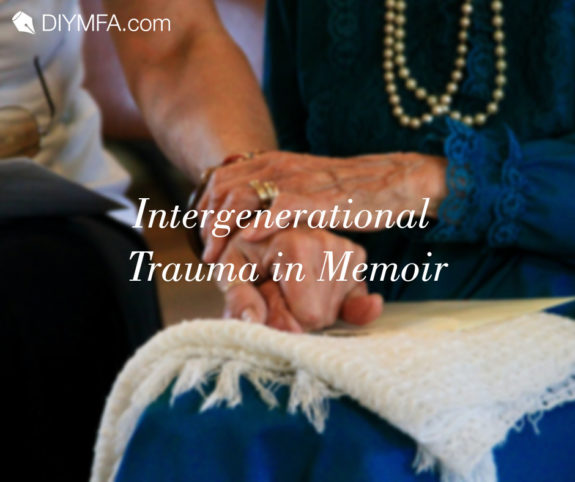The clinical definition of intergenerational trauma, also sometimes referred to as multigenerational trauma, is trauma that is “passed down from the generation that experienced the trauma to subsequent generations.” These traumas exist in many forms—they are the aftermaths of war, sexual and physical abuse, drug abuse, and suicides. Other family traumas, such as family secrets, can also cause and lead to anxiety, mistrust, alienation, low self-esteem, failures, OCD, eating disorders, and risky behavior.
Psychologists have long known that trauma doesn’t always dissipate with the generation that experienced it. It has a way of oozing out and trickling down from one generation to the next. And trauma isn’t always so easy to spot. It doesn’t always show up as abuse. It can manifest in subtle ways, yet still be just as disabling. In more personal terms, these traumas are all connected to what I call “the legacy of loss.”
Intergenerational Trauma and the Legacy of Loss
When I chose to write a memoir about some of my experiences with the legacy of loss, I found myself in new dilemmas I hadn’t confronted before as a writer of fiction. I found myself asking a lot of questions. How do I approach writing about people no longer living? Can I tell my side of the story without their input? How do I write about people still alive? Will they have issues with how I tell my story? Do I use real names? First names only? This was only the beginning of a more-than-decade journey in writing and publishing my memoir, Do Not Disclose.
As a fiction writer, it was easier for me to make up characters and imbibe them with personality, behavior, trauma, and loss. It’s much harder to tell one’s own story, to narrate one’s own life and become an actual “character” in one’s book. But after some fictionalized versions, I came to the conclusion that the only way to write this particular story, the only way to tell my truth, was to lay it all out exactly as it happened, first names and all.
The Role of Hindsight
Hindsight is helpful in writing about intergenerational trauma. Years of adult experience, seeing and understanding the world are useful. Lastly, therapy too can be another gateway in understanding intergenerational trauma. As children, we don’t understand clearly what’s going on around us, but we still absorb and know that there’s something wrong in our families, but we can’t quite put our fingers on it.
In my case, the Holocaust, my father’s affair, and finding out I had a sister, all affected the way I look and think about the world around me. It colored the way I see and trust. I personally didn’t live through and survive the Holocaust, but my father did, and his trauma and sense of loss was passed down to me in different ways. His view of a world not to be trusted became part of my legacy. Even his need for achievement was passed on to me—the need to live and achieve for all the others who didn’t survive, something which can be both a positive and negative legacy.
How to approach this kind of writing?
My best advice is to approach with delicacy, clarity, honesty, understanding and good research. Although there might be ample reasons to blame or shame, anger isn’t a helpful asset in writing. Keep in mind that we are all fallible. We make mistakes, we fail, but we also succeed. Write about the bad, but include the good too.
Fallout
But even with all this in mind, be prepared for fallout. Not everyone will see things the way you see or saw them. Everyone has their own “truth.”
Memory is often subjective, nuanced and biased. In my career as lawyer and judge, I often heard many variations in the way witnesses viewed and perceived the very same incident. These sometimes conflicting stories didn’t always mean that one story was true, the other a lie. Memory can be skewed by so many factors—timing, age, and context.
But don’t let possible fallout keep you from writing your own truth.
Writing your truth can be cathartic and hard at the same time as you relive seminal moments in your and other’s lives. Hopefully, the writing, though, will bring you a greater understanding, an overview and perspective of events along with a newfound clarity in your own life.
For one’s own sake, approach writing about intergenerational trauma with a measure of kindness and with hope for the future. Try not to let the trauma continue to be passed on once again to yet another generation. Find your own light and let it into your story.

Leora Krygier is a former Los Angeles Superior Court, Juvenile Division judge. She’s the author of When She Sleeps (Toby Press), which was lauded for its “luminous prose” (Newsweek) and praised by Booklist, Library Journal, and Kirkus. She’s also the author of Juvenile Court: A Judges Guide for Young Adults and their Parents (Rowan & Littlefield), Keep Her (She Writes Press), and Do Not Disclose: A Memoir (She Writes Press, 8/24/21). You can find her on her website and follow her on Facebook and Instagram.







